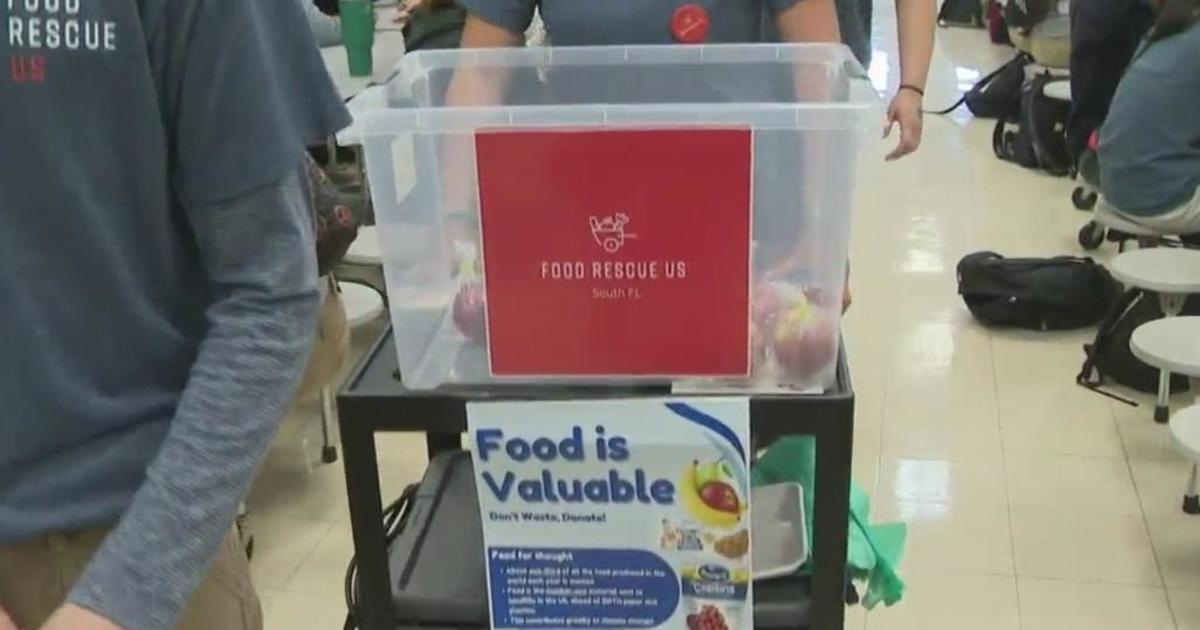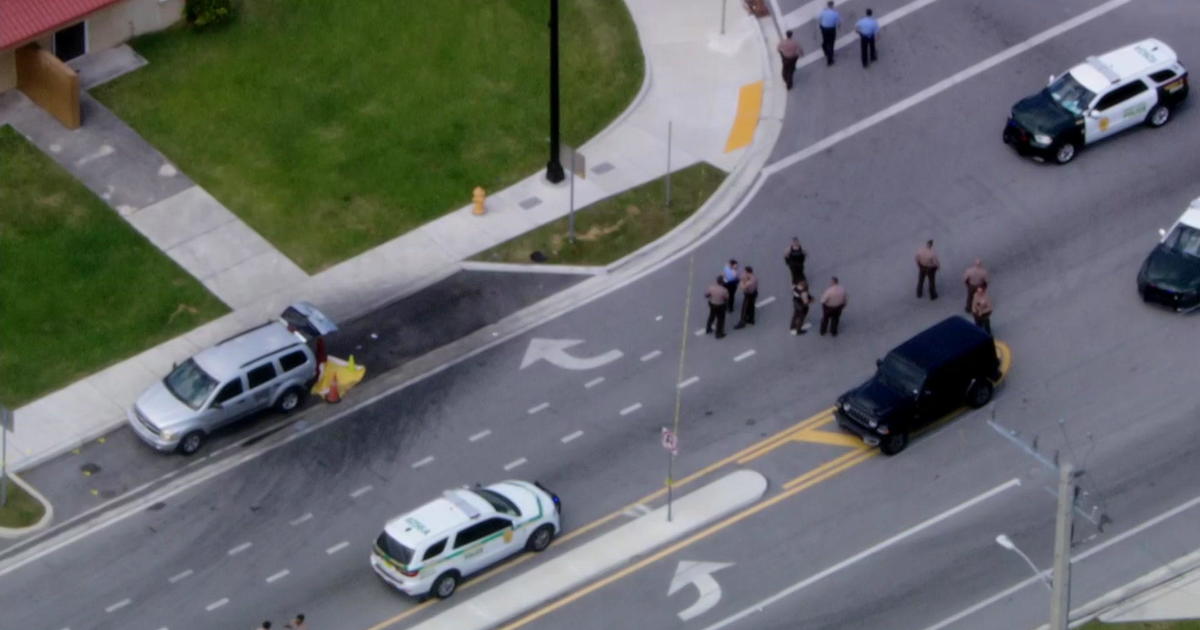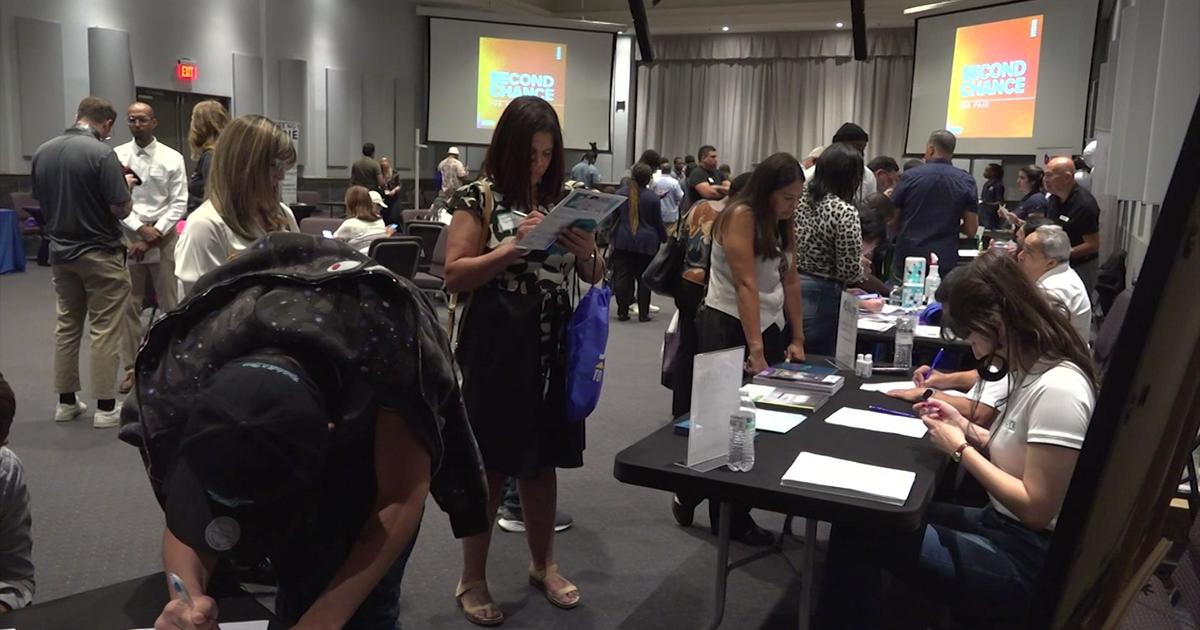MDPD May Soon Switch Back To Old Radio System
MIAMI (CBSMiami) -- The Miami Dade Police Department will switch back to its old radio system if the persistent problems with their new radios are not resolved in the next couple of days, Deputy Director Juan Perez said Wednesday.
"We're willing to go back to the old system, which by the way was not a perfect system," Perez told the county commission's Public Safety Committee Wednesday. "But it was working better. So we'll go back to it until they can find a solution they are all happy with."
The new system – which cost taxpayers between $25 million and $30 million – was supposed to be a giant step forward for the department. The new radios worked on a digital signal, as opposed to an older analog system.
The new radios were also supposed to feature full encryption, whereby only police officers with specialized radios would be able to hear what other officers were broadcasting. The encrypted system would lock out members of the media which monitor police activities as well as the public who listen to scanners. Police argue the encryption is necessary to protect officers since criminals may also be able to hear police calls.
But as soon as the new radios were launched on April 15, problems ensued. The encryption was scrambling the signal and preventing some officers from hearing anything but electronic tones.
Miami Dade was the largest police department in the country to move to full encryption and the radio vendor, Harris Corporation, privately complained they were not prepared for the volume of traffic on the radios.
There were other problems as well. The so-called "red button" or emergency buttons on the radios were failing. When an officer is in serious trouble, he can push that button and immediately summon help. CBS4 News has learned of at least two incidents where police officers were in physical fights with someone and needed help – but their red buttons failed.
The new radios have also caused dispatch computers to crash and the new digital signal does not cover the entire county, leaving dead zones where officers are unable to use their radios,.
By the end of April, the department stripped the encryption out of the system, hoping it would resolve some of the problems. But those defects have persisted.
"This is a very serious problem," Bal Harbour resident Brian Mulheren told commissioners.
Mulheren, a retired New York Police detective who was the liaison between the New York Mayor's Office and the NYPD for years in the Seventies and Eighties, asked to have the radio issue placed on the Public Safety Committee's agenda. Prior to his request, commissioners had shown little interest in what was happening with the radios.
Mulheren, a member of the Bal Harbour's Citizen's Coalition, has taken special interest because he helped upgrade the New York Police Department's radio system.
Mulheren criticized the way the department rolled out the new radios. He argued they should have tested them thoroughly before launching them countywide.
Added his fellow Bal Harbor coalition member, Neil Alter: "How is it possible to spend $25 to $30 million on a system that doesn't function properly?"
The radio failures have placed new scrutiny on the county's Information Technology Department and its director, Angel Petisco. On Wednesday Petisco tried to convince commissioners they had gotten a real deal - the new radio system was originally priced at $160 million but the county was able to buy it for just $25 million
But Commissioner Sally Heyman was unimpressed.
"I got to tell you something, I love a bargain," said Heyman, "but it's no bargain if it doesn't work for the men and women who need it."
Commissioner Esteban Bovo wanted to know how much of the $25 to $30 million has been paid to Harris. ITD director Petisco said about half.
Bovo wondered at what point the commission should begin discussing cancelling the contract and getting its money back. Petisco said Harris was committed to fixing the problems and now have 30 engineers and technicians in Miami working on a solution.
RELATED CONTENT:



